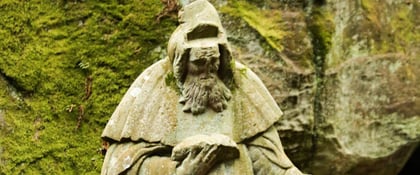What Christianity Can Be - Issue #327

Last week, I listening to a great book The Ruthless Elimination of Hurry by John Mark Comer. I grabbed it from HubSpot's free books program because I thought it would help me calm down and, amidst my ongoing sabbatical from HubSpot, think about structures for keeping my work in its proper place. The title made it seem like the sort of book that would help me reconsider my constant racing to manage the calendar and inbox and my increasing work evenings.
It didn't really do that.
Or at least, that's not where it started. The book was surprisingly religious. The author's presupposition is that unless your life is oriented towards something deeply meaningful, then the hurry of our culture will be just how you operate. There's not really a point to saying no to hurry unless you are saying yes to something else. The something else the author proposes is following in the way of Jesus—slow, purposeful, unhurried. This was a plot twist.
But I think he's on to something: in our culture, the historic teachings and practices of the church have something distinct to say. Right at the point where Jesus' ministry took off, he went full nomad and into full retreat: instead of capturing the moment, he went into the wilderness for 40 days. Most of the stories in the gospels start and end with Jesus retreating into silent prayer. Probably he wouldn't have been an entertaining Twitter follow.
I had a similar thought when reading one of Paul Kingsnorth's latest essays: we might be well-served by more silence and wilderness.
Reading
A Wild ChristianityI feel that in another time of crisis and confusion we need to go back to our roots, both literal and spiritual. To flee from the gaze of a civilized center that denies God and launches salvo after salvo daily against the human soul. To seek out a wild Christianity, which will see us praying for hours in the sea as the otters play around us. To understand—to remember—that the Earth and the world are not the same thing. |
|
This post originally appeared in Nathanael's Reading, a weekly email with original thoughts and curated reading on technology + marketing + simplicity. Subscribe here.
